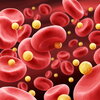
Contact Information
407 South Goodwin Ave
Urbana, IL 61801
Office: (217) 244-5477
Lab: (217) 300-1418
Biography
Erik Nelson is a professor of Molecular and Integrative Physiology and is affiliated with the Division of Nutritional Sciences, Cancer Center at Illinois (Urbana), University of Illinois Cancer Center (Chicago), as well as the Anticancer Discovery from Pets to People research theme within the Carl R. Woese Institute for Genomic Biology.
Dr. Nelson has been named the 2025-2026 Dean’s Distinguished Professorial Scholar by the College of Liberal Arts and Sciences for his work on cholesterol metabolism and cancer.
Research Interests
Research Topics
Cell-Cell Interactions, Drug Discovery, Endocrinology, Metabolic Regulation, Regulation of Gene Expression, Signal Transduction
Disease Research Interests
Cancer, Drug Discovery
Research Description
Endocrine and Metabolic Control of Breast and Ovarian Cancer Pathophysiology
Patients with metastatic breast and ovarian cancer continue to have a very poor prognosis. The magnitude of this problem provides a strong impetus for studies that may lead to new chemopreventative strategies and/or lifestyle changes that reduce morbidity from these cancers. Therefore, the goal of our research is to elucidate the effects of the endocrine system and metabolism on breast and ovarian cancer initiation and progression. We integrate our expertise in physiology, endocrinology, immunology and in vivo models to pursue translational breast and ovarian cancer research.
We have found that cholesterol metabolism plays critical roles in tumors, including in the immune cells that infiltrate tumors. We hope to leverage this knowledge to develop novel therapeutic approaches to treat breast and ovarian cancers.
The major focuses of the lab are:
- Using cholesterol biology to reprogram tumor associated immune cells.
- Defining the mechanisms by which cholesterol metabolites impact tumor progression and metastasis.
- Delineating the role of nuclear receptor signaling within the tumor microenvironment and its impact on tumor progression.
- Determining what regulates extracellular vesicles.
Education
2002 B.Sc. in Zoology, University of Calgary, Canada
2008 Ph.D. in Comparative Endocrinology, University of Calgary, Canada
2008-2014 Postdoctoral Associate, Duke University School of Medicine, Durham, NC
Awards and Honors
2025 Named the Dean’s Distinguished Professorial Scholar.
2025 Recipient of the Richard E. Weitzman Outstanding Early Career Investigator Laureate Award from the Endocrine Society.
2024 Named on the List of Researchers to Know by the Illinois Science & Technology Coalition.
2023 Selected as Emerging Research Leader, University of Illinois.
2022 Recipient of James E. and Maxine S. Heath Award for Excellence in Teaching. Department of Molecular and Integrative Physiology, University of Illinois.
2021 Named an Era of Hope Scholar, Department of Defense Breast Cancer Research Program.
2021 Named the 2020-2021 I.C. Gunsalus Scholar at the University of Illinois.
Additional Campus Affiliations
Highlighted Publications
Representative Publications
Gamage HEV, Shahoei SH, Wang Y, Jacquin E, Weisser E, Bautista RO, Henn MA, Schane CP, Nelczyk AT, Ma L, Das Gupta A, Bendre SV, Nguyen T, Tiwari S, Tjoanda E, Krawczynska N, He S, Albright ST, Farmer R, Smith AJ, Fink EC, Chen H, Sverdlov M, Gann PH, Boidot R, Vegran F, Fanning SW, Hergenrother PJ, Apetoh L, Nelson ER (2024). NR0B2 re-educates myeloid immune cells to reduce regulatory T cell expansion and progression of breast and other solid tumors. Cancer Letters, 597:217042, Link to Paper
Gamage HEV, Albright ST, Smith AJ, Farmer R, Shahoei SH, Wang Y, Fink EC, Jacquin E, Weisser E, Bautista RO, Henn MA, Schane CP, Nelczyk AT, Ma L, Das Gupta A, Bendre SV, Nguyen T, Tiwari S, Krawczynska N, He S, Tjoanda E, Chen H, Sverdlov M, Gann PH, Boidot R, Vegran F, Fanning SW, Apetoh L, Hergenrother PJ, Nelson ER (2024). Development of NR0B2 as a therapeutic target for the re-education of tumor associated myeloid cells. Cancer Letters 597:217086. Link to Paper
Nelczyk AT, Ma L, Das Gupta A, Vidana Gamage HE, McHenry MT, Henn MA, Kadiri M, Wang Y, Krawczynska N, Bendre S, He S, Shahoei SH, Madak-Erdogan Z, Hsiao SH, Saleh T, Carpenter V, Gewirtz DA,. Spinella MJ, Nelson ER. The nuclear receptor TLX (NR2E1) inhibits growth and progression of triple- negative breast cancer. Biochim Biophys Acta Mol Basis Dis. 2022. Link to Paper
Ma L, Wang L, Nelson AT, Han C, He S, Henn MA, Menon K, Chen JJ, Baek AE, Vardanyan A, Shahoei SH, Park S, Shapiro DJ, Nanjappa SG, Nelson E.R.. (2020). 27-Hydroxycholesterol acts on myeloid immune cells to induce T cell dysfunction, promoting breast cancer progression. Cancer Letters. Link to Paper
He S., Ma L., Baek A.E., Vardanyan A., Vembar V., Chen J.J., Nelson A.T., Burdette J.E., and Nelson E.R. (2019). Host CYP27A1 expression is essential for ovarian cancer progression. Endocrine Related Cancer , Link to Paper
Baek A.E., Yu Y.R., He S., Wardell S.E., Chang C.Y., Kwon S., Pillai R.V., Thompson W., Dubois L.G., Sullivan P.M., Kemper J.K., Gunn M.D., McDonnell D.P., and Nelson E.R. (2017). The cholesterol metabolite 27-hydroxycholesterol facilitates breast cancer metastasis through its actions on immune cells. Nature Communications, 8(1):864. PMCID: PMC5636879 Link to Paper
Nelson E.R., Wardell S.E., Jasper J.S., Park S., Suchindran S., Howe M.K.,Carver N.J., Pillai R.V., Sullivan P.M., Sondhi V., Umetani M., Geradts J., and McDonnell D.P. (2013). 27-Hydroxycholesterol Links Hypercholesterolemia and Breast Cancer Pathophysiology. Science. 342(6162):1094-8. PMID: 24288332. Link to Paper
Recent Publications
Barai, P., Abdullah, R., Bendre, S. V., Weisser, E., van der Donk, M. J., Wong, K. L., Reyes-Ordoñez, A., Nelson, E. R., & Chen, J. (2026). Threonyl-tRNA synthetase activates STAT3 by a nontranslational mechanism[Figure presented]. Journal of Biological Chemistry, 302(2), Article 111032. https://doi.org/10.1016/j.jbc.2025.111032
Bendre, S. V., Wang, Y., Hajyousif, B., Rajendra, K. C., Bhogale, S. G., Pradeep, D., Krawczynska, N., Schane, C. P., Weisser, E., Singh, A., Han, S., Kim, H., Kockaya, L., Gupta, A. D., Nelczyk, A. T., Gamage, H. E. V., Fei, Y., Rodríguez-Casiano, D., Guo, X., ... Nelson, E. R. (2026). Cholesterol efflux protein, ABCA1, supports anticancer functions of myeloid immune cells. Science Advances, 12(1), Article eadx5490. https://doi.org/10.1126/sciadv.adx5490
Krawczynska, N., Wang, Y., Lim, K., Das Gupta, A., Molino, R. J. E. J., Lenczowski, A., Abughazaleh, M., Bendre, S. V., Fei, Y., Kim, H., Kockaya, L. I., Schane, C. P., Pradeep, D., Rodriguez-Casiano, D., Hernandez, A. G., Drnevich, J., Chan, J., Dobrucki, L. W., Boppart, M. D., ... Nelson, E. R. (2026). Neutrophils exposed to a cholesterol metabolite secrete extracellular vesicles that promote epithelial-mesenchymal transition and stemness in breast cancer cells. Cancer Letters, 636, Article 218105. https://doi.org/10.1016/j.canlet.2025.218105
Applegate, C. C., Kang, Y., Deng, H., Chen, D., Medina, N. Y. G., Cui, Y., Feng, Y., Kuo, C. W., Shahoei, S. H., Kim, H., Gamage, H. E. V., Wallig, M. A., Nelson, E. R., Swanson, K. S., & Smith, A. M. (2025). Nanomedicine targeting PPAR in adipose tissue macrophages improves lipid metabolism and obesity-induced metabolic dysfunction. Science Advances, 11(39), Article eads3731. https://doi.org/10.1126/sciadv.ads3731
Duraki, D., Jabeen, M., Mao, C., Wang, L., Ghosh, S., Dai, X., Zhu, J., Boudreau, M. W., Nelson, E. R., Hergenrother, P. J., Cheng, G., & Shapiro, D. J. (2025). A necrosis inducer promotes an immunogenic response and destroys ovarian cancers in mouse xenografts and patient ascites organoids. Cancer Letters, 625, Article 217738. https://doi.org/10.1016/j.canlet.2025.217738




